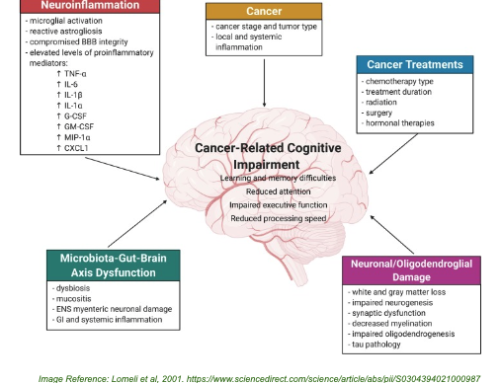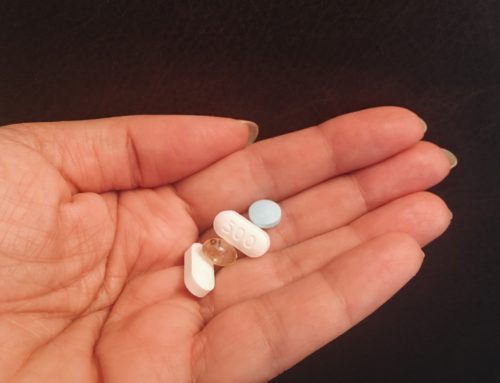It’s no secret that our traditional healthcare system is largely reactionary. An individual will seek medical advice with the onset of signs and symptoms. They are then assessed and diagnosed, but this could well be after the disease or disorder has begun its course. The individual is already a patient when they commence treatment instead of taking steps to intervene in the path of the disease prior to its inception.
Precision healthcare offers an exciting potential change of the medical and broader health landscape. It offers a tangible change in the way we manage our health from reactionary and practitioner focused to preventative and consumer focused.
This is a necessary change. Australia’s healthcare spending tipped over 10 percent of GDP back in 2015, annually increasing by 4.6 per cent, compared to a GPD growth of 2.6 percent. It’s easy to see how this rapidly increasing cost of healthcare will ultimately become unsustainable for the Australian economy.
What is Precision Healthcare?
Precision healthcare is a rapidly developing field in healthcare. Many disciplines fall under its scope, including bioinformatics, systems biology and computational genomics. With so many developing technologies under its umbrella, it should be emphasised that this emerging domain of healthcare has a strong focus on risk detection, prevention and delay of chronic disease.
Most importantly, it also promises to empower individuals to manage their own health. In this increasingly technological age, younger generations are widely choosing wellness options over traditional healthcare, which makes precision healthcare an important development in the future of healthcare management.
What are the benefits?
Precision healthcare will utilise digital health to completely transform our current healthcare system into one that is more cost effective, consumer-friendly and sustainable.
Predicting risk of disease
One of the main focuses is going to be on predicting risk of disease. In our current system, an individual’s risk is largely based on symptoms, lifestyle factors, family history and in some cases, specific genetic profiling. Currently, as a general rule individuals are only screened for specific disease where some family history exists (i.e. breast cancer) and the general population is only screened for common diseases where there are obvious risk factors (i.e. heart disease and diabetes).
In this new era of healthcare, your risk of disease may be assessed as early as in-vitro and digital technology will establish your risk profile via genome-wide studies. These will be able to assess risk of more complex diseases (diabetes, heart disease) when coupled with lifestyle factors such as diet, exercise and environment.
Disease Prevention & Detection
Once your risk profile has been established, wearable technologies, or those that can be used at home, will be utilised to monitor your health ongoing. Data will be captured, integrated and analysed to build individual, tailored health profiles and recommendations.
These technologies may assess physiological data such as heart rate or saliva quality, behavioural data such as activity or environmental data such as air quality and noise pollution. Mental health data can be captured via smartphone technologies (a decrease in frequency of texting may indicate depression or anxiety). Digital innovations may even begin to take into account social factors when predicting disease and assessing health risk.
This wider view of health will result in more precise recommendations and a tailored action plan for individual health profiles. Recommendations may be as simple as increases in exercise, dietary changes or more complex depending on the specific data generated. This continuous monitoring will result in consistent, longitudinal data sets that are more accurate and will result in better health advice. In-home and wearable monitoring will also have the ability to adapt to changes in physiology and environment, such as moving house or quitting smoking.
An early example of such digital health devices is AliveCor’s personal EKG (electrocardiogram), which can detect multiple abnormal hearth rhythms. The device is portable and can share data wirelessly, allowing doctors to monitor patients remotely.
Compare this to our current ‘one size fits all’ style of general health advice which is largely based on infrequent data collection and fallible personal histories. In the precision healthcare model, we have the potential to prevent disease via recommendations and risk assessment as well as earlier detection.
Consumer focused
An Accenture 2019 Digital Health Consumer Survey in the US showed that only 55% of Gen Z consumers have a primary care physician versus 84% of baby boomers. This is consistent with a common observation that younger consumers are seeking a more active participation in their healthcare and are looking to the world of wellness over traditional medicine.

Precision healthcare falls in line with this shift. Accessible health data and more specific information will allow people to have much more empowerment and control when it comes to their health. Tracking technology allows individuals to have a better idea of the state of their health without having to consult a doctor. They will also be able to make better and more informed choices and will be able to tangibly see improvements in their outcomes via non-invasive lifestyle and behavioural changes.
Tele-health and remote clinician access will also mean fewer clinic visits, allowing patients to more easily follow up on any health concerns. This will lead to earlier detection and earlier commencement of treatment where necessary.
More effectively treat disease
More personal devices and in-home digital technologies will equate to larger and broader data sets, meaning a rapid advancement in our understanding of the process of disease and disorder, including diagnosis, treatment and management. We have already seen rapid advancements in digital therapeutics. These are essentially software-based solutions which can treat, manage or support specific disease and disorder.
This specificity of data will also allow researchers to understand how different diseases affect different populations and individuals, meaning more tailored treatments. The digitalisation of clinical trials will mean better drugs will be validated faster. This will all quickly equal a much better quality of disease management and prevention of common comorbidities.
Is this the future of healthcare?
It’s clear that precision healthcare, with all of its digital innovations, is the future of healthcare. Australia’s rapidly aging population and ballooning healthcare costs mean that a change is essential.
With the potential for improved risk assessment, earlier disease detection, tailored health plans and a more consumer focused position, precision healthcare and digital health represent the exact change our healthcare system needs.
References
- Australian Institute of Health and Welfare. (2018). Health expenditure Australia 2016–17. Canberra: AIHW.
- Vermeesch JR, Voet T, Devriendt K. Prenatal and pre-implantation genetic diagnosis. Nat. Rev. Genet. 2016;17:643–656.
- Gambhir, S. S., Ge, T. J., Vermesh, O., & Spitler, R. (2018). Toward achieving precision health. Science translational medicine, 10(430), eaao3612. https://doi.org/10.1126/scitranslmed.aao3612



